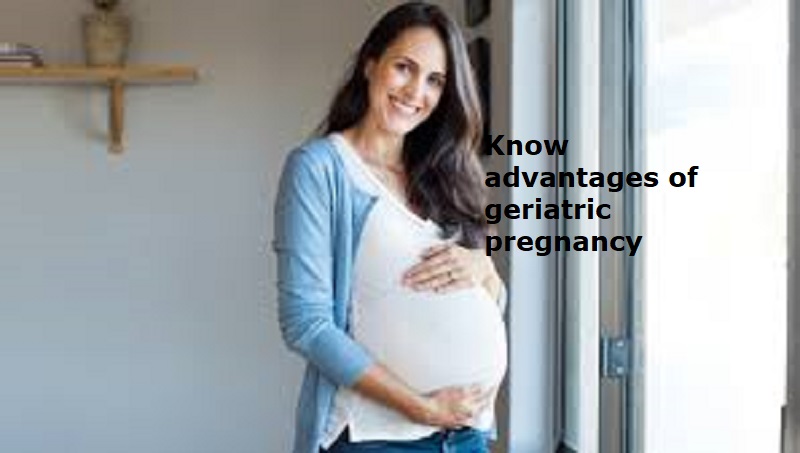
Geriatric pregnancy is an old term that was used to describe a pregnancy in a person over the age of 35. It is now referred as the advanced maternal age.
As per medical experts, geriatric pregnancy may carry some medical concerns, there are numerous benefits associated with being an older mother. The medical community often monitors geriatric pregnancies closely due to potential risks such as gestational diabetes and preeclampsia.
Benefits for mother and child
1. Increased emotional maturity
Emotional maturity is crucial in parenting. Older mothers typically bring a wealth of life experience to their parenting roles. This will enable them to handle the psychological and emotional demands of motherhood with greater patience and insight.
2. Better financial stability
Older mothers are likely to have established careers and stronger financial grounding, which can reduce stress and provide better resources for child-rearing.
3. Stronger family relationships
Mature parents often have more established relationships. This will create a deeper familial connections, a robust support and a more supportive environment for both the mother and child.
4. Advanced education and knowledge
Older mothers often possess greater educational achievements and a better grasp of child healthcare necessities, which can significantly benefit their children’s upbringing and wellness.
5. Longer life expectancy
Research studies show that women who give birth later might enjoy longer life spans.
6. Reduced risk of breast cancer
Recent studies have suggested potential health benefits related to late pregnancies.
While geriatric pregnancy can offer significant benefits, it also comes with specific challenges and medical considerations that cannot be overlooked.
Also Read: Easy natural tips to lose weight
1. Health monitoring
Regular health monitoring is paramount for geriatric pregnancies due to the increased risk of complications such as high blood pressure, gestational diabetes, and preeclampsia.
2. Genetic counselling
Genetic counselling is highly advisable for expectant mothers over the age of 35. This service provides critical insights into potential genetic risks, such as chromosomal abnormalities, that could affect the child.
3. Lifestyle adjustments
Maintaining a healthy lifestyle plays a crucial role in the success of any pregnancy, particularly in geriatric pregnancies. This includes adhering to a balanced diet rich in nutrients, engaging in regular, moderate exercise tailored to pregnancy, and avoiding harmful substances such as tobacco and alcohol. Such adjustments help optimise maternal health and foetal development, reducing the likelihood of complications.

Post Your Comments